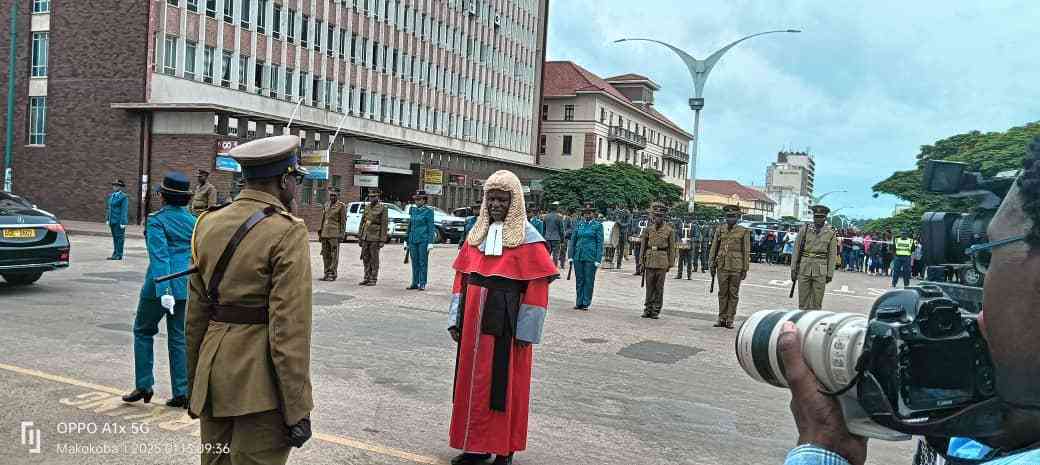
JUDICIAL officers must instil public confidence and trust in the Judiciary, Chief Justice Luke Malaba has said, amid concerns citizens were losing trust in the administration of justice.
Speaking during the official opening of the legal year in Bulawayo yesterday, Malaba said the Judicial Service Commission (JSC)’s decision to host the event in Bulawayo reflected its commitment to decentralise access to justice.
The event was held under the theme Building public confidence in the Judiciary through multi-stakeholders participation.
“The occasion, therefore, provides an opportunity for the courts to address the concerns that the public may have regarding the administration of justice and to outline measures through which such challenges may be addressed in order to enhance the administration of justice,” Malaba said.
“We believe that this theme will serve to strengthen and refocus the Judiciary and all stakeholders in the justice sector, urging us to channel our efforts into building public confidence not only in the Judiciary, but also in all institutions within the justice sector.
“It is inherent that the Judiciary must be accountable to the public. Every action and decision made by the courts in adjudicating disputes must ultimately receive the endorsement of the public.
“This means that the Judiciary’s overall performance is subject to the evaluation of the people of Zimbabwe. Achieving the delivery of quality justice is possible only through collaboration and partnership with all stakeholders within the justice sector.”
Malaba said the conduct and manner in which each public institution carries out its mandate, directly influences the level of confidence the public places in it.
- Harvest hay to prevent veldfires: Ema
- Top jurists probe Zim ‘judicial capture’
- Top jurists probe Zim ‘judicial capture’
- Corruption watch: Presidential aspirants: What chances for Kasukuwere?
Keep Reading
“Members of the Judiciary, individually and collectively, must respect and honour their judicial office as a public trust and must strive to enhance their independence in order to maintain public confidence in the judicial system,” he said.
“Broadly speaking, public confidence in the Judiciary is reflected in the public’s belief in the efficiency, fairness and impartiality of the courts in adherence to the rule of law and in the protection of human rights and freedoms.”
He said it was, therefore, the commission’s responsibility to implement policies and measures that safeguarded Judicial independence and ensured accountability to the public.
The measures, he said, included the rigorous monitoring of court and judicial officer performance through the commission’s Performance Management System that ensured cases were finalised promptly, judgments were delivered without delay and case backlogs were kept to an absolute minimum.
He said the past year had been one of the busiest and most successful for JSC as it undertook numerous activities and made significant progress in addressing the needs of the public and members of the Judiciary.
He said the year saw the appointment of Justice Gaiarinesu Mawadze to the position of deputy Judge President of the High Court with the commission facilitating the appointment of 10 new High Court judges and one Administrative Court judge to replace those who retired, resigned, passed away or were discharged.
He said another significant decision made by JSC in 2024 was the splitting of Harare Province into two administrative provinces, a move driven by the growing workload in the region.
“Harare Province had become too large to be effectively managed from a single centre. For example, Mbare Magistrates Court alone processes more cases than the combined total of Mashonaland East, Central and West,” he said.
“Similarly, Harare Civil Court handles between 48 000 to 50 000 cases annually, surpassing the total caseload of many other provinces. To alleviate pressure on administrators, Harare was divided into Harare North and Harare South magisterial provinces.”










